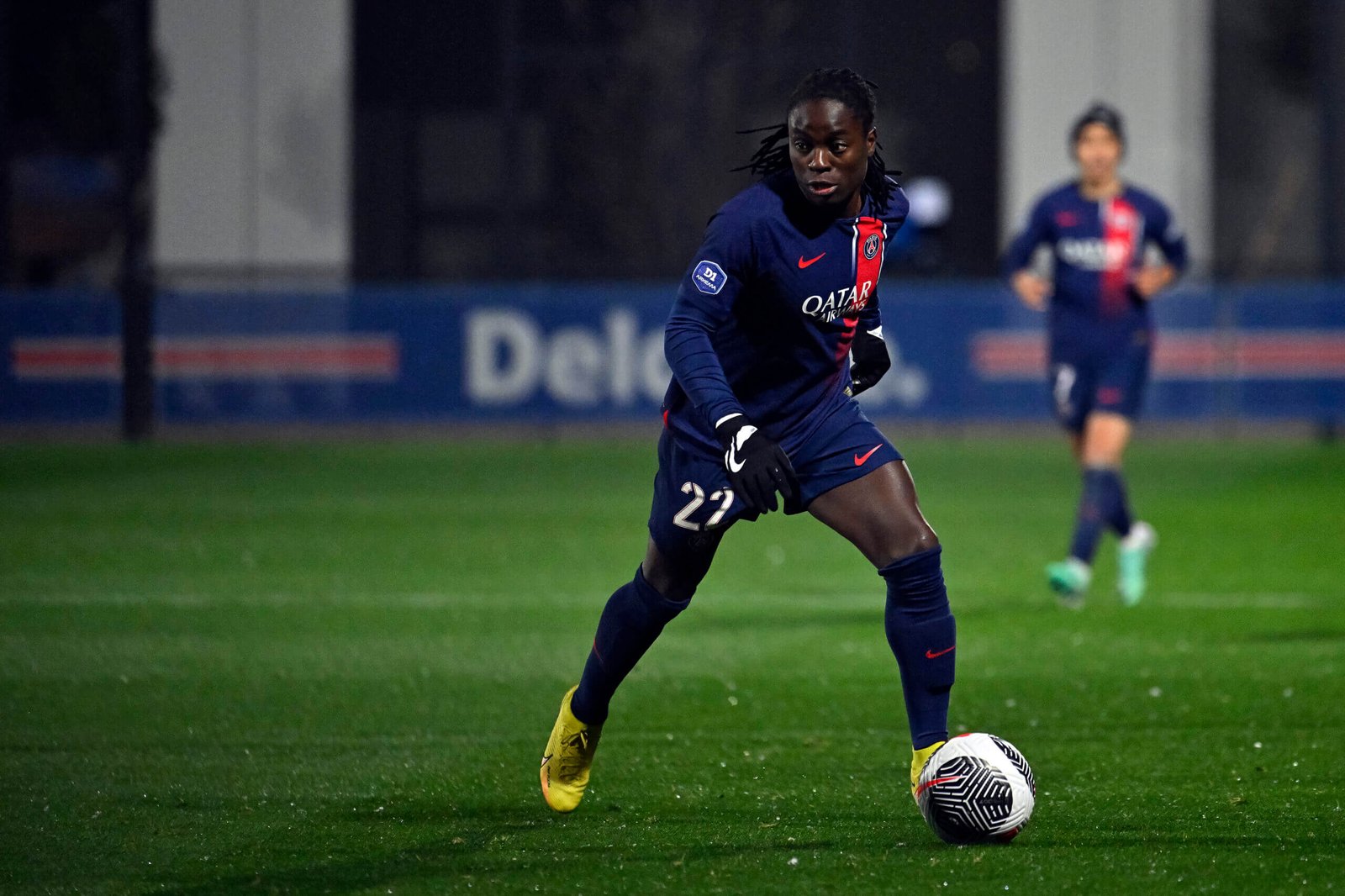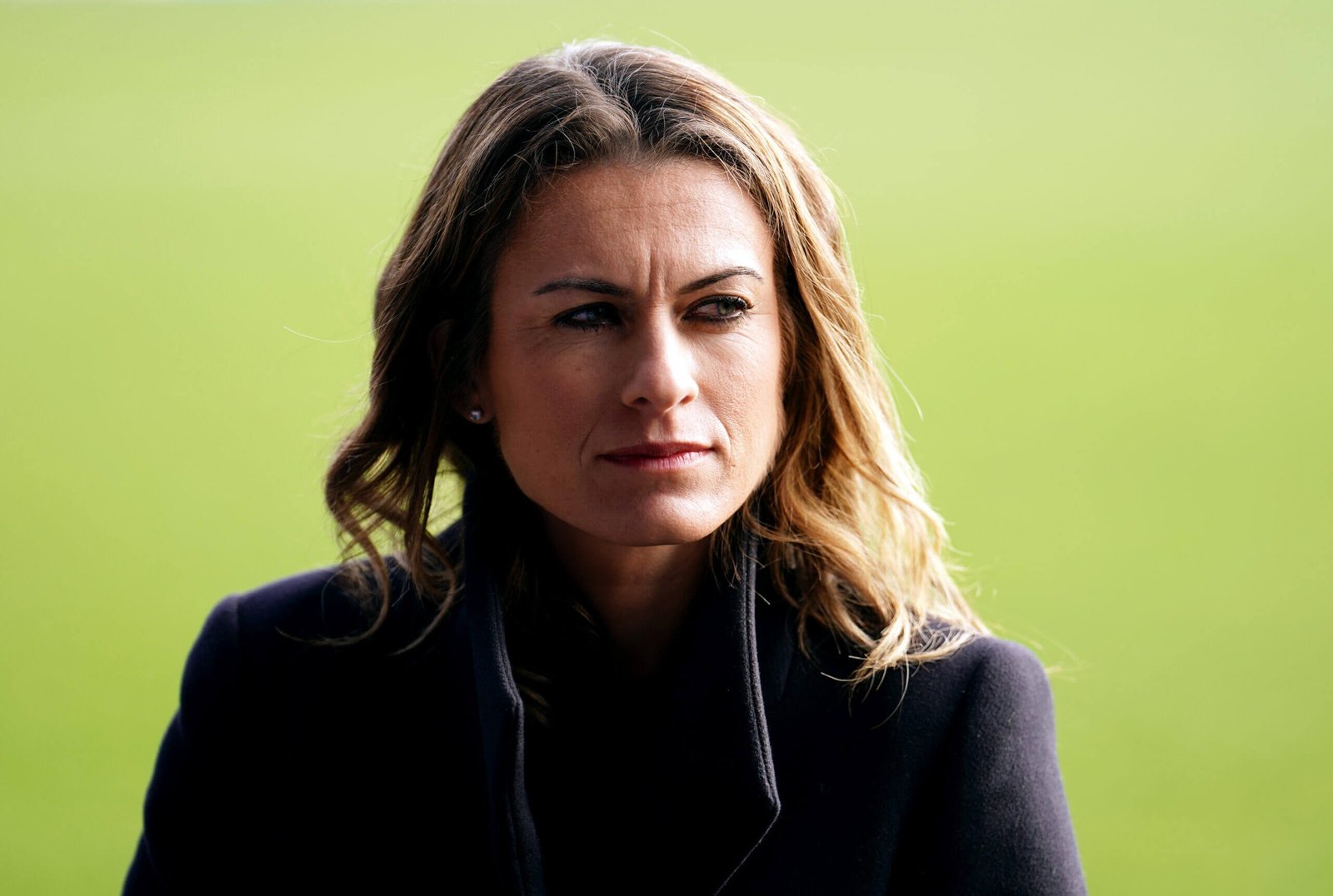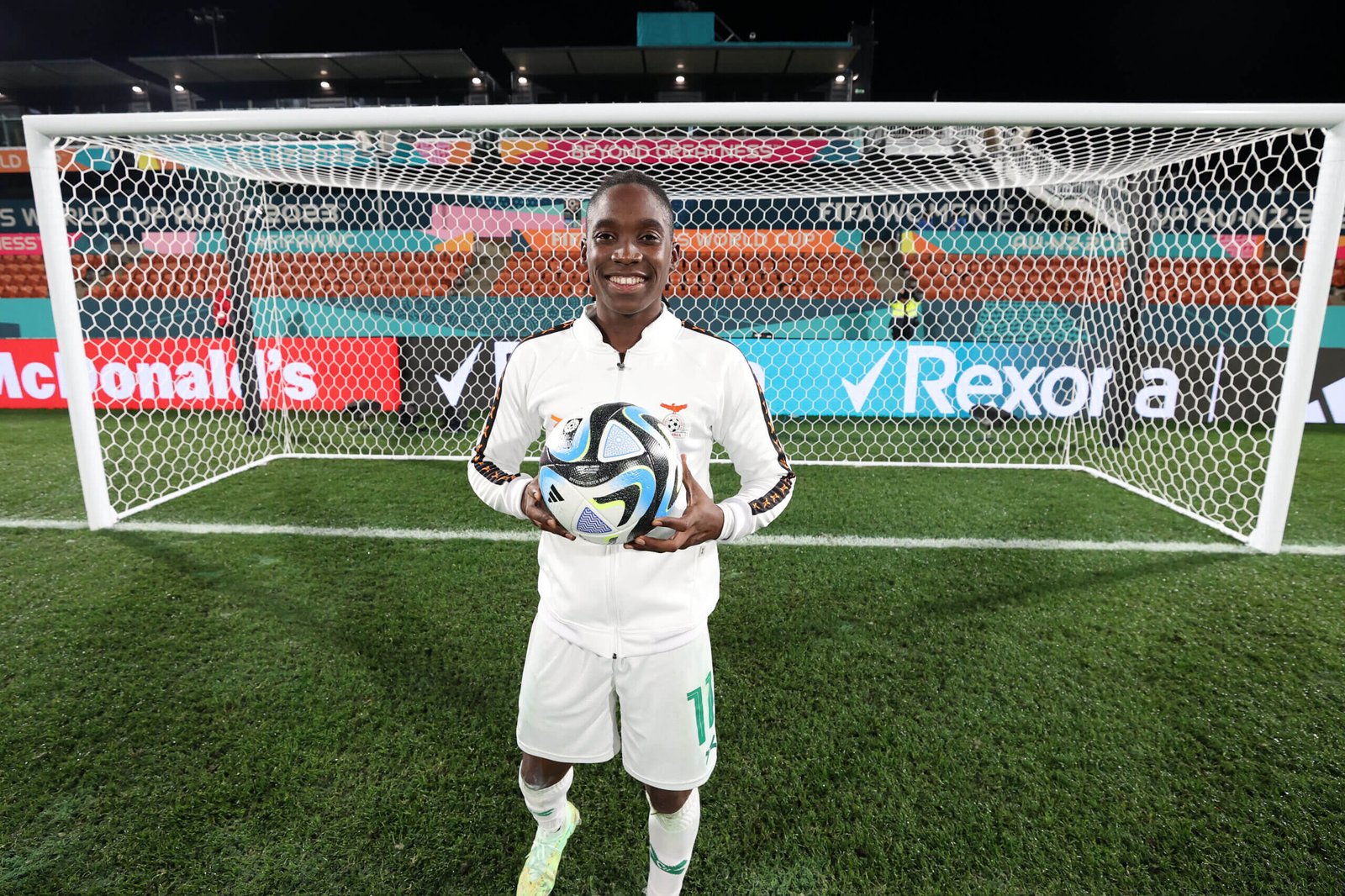Stellar international signings have arrived in England this season: Japan international Riko Ueki to West Ham United, Lyon striker Melvine Malard and Spain international Irene Guerrero to Manchester United and, most recently, USWNT defender Emily Fox to Arsenal.
But when scouring the international market for talent, Women’s Super League (WSL) and Women’s Championship (WC) clubs have to think smart and play by the rules.
Following Brexit, from December 2020 onwards, regulations were imposed on clubs looking to sign overseas players. In conjunction with the Home Office, the FA introduced a points-based system that players without a visa are required to pass. This is known as a Governing Body Endorsement (GBE) and applies to the men’s and women’s games.
The GBE system is intended to only allow the best international players to come to England, protecting the domestic pathway, but there are concerns that the system is stunting English clubs’ ability to compete with the rest of Europe.
The GBE system awards points to players based on their experience within the game, assessing the level they have played at internationally and for their clubs. A female player must reach 24 points to qualify.
Points are awarded based on criteria such as game time for senior national teams and clubs. These are scaled based on how good the FA thinks these national teams and leagues are, so a player who plays 50 per cent of the available international fixtures over a year for a top-five nation, such as the United States or Spain, would get an ‘auto-pass’ and receive a GBE, while a player playing the same ratio of games for a nation outside the top 20, such as Nigeria (ranked 42 by FIFA), would not receive a single point.
On this basis, players such as Tabitha Chawinga — who captains the Malawi women’s national team, was the top scorer (23) in Serie A for Inter Milan last season, and whose goal for Paris Saint-Germain (with whom she signed this season) helped knock Manchester United out of the UEFA Women’s Champions League — would not receive a point unless she had played at least 80 per cent of her country’s international matches.

Malawi and PSG forward Tabitha Chawinga could theoretically be barred from playing in England (Aurelien Meunier – PSG via Getty Images)
A similar scheme applies to domestic leagues. These are ranked in several different bands. As it stands in the 2023-24 season, there are seven Band 1 leagues: England, France, Germany, Spain, Sweden, the U.S. and the Netherlands. Then in Band 2, you will find Norway, Australia, Mexico, Brazil, Denmark, Italy and Japan. The remaining leagues fall into Band 3. These rankings have changed since GBEs originally came in, supposedly to reflect the rise and fall of different leagues.
Points accrued for domestic minutes
| Domestic League Minutes | Band 1 | Band 2 | Band 3 |
|---|---|---|---|
|
90-100% |
12 |
10 |
5 |
|
80-89% |
11 |
9 |
4 |
|
70-79% |
10 |
8 |
3 |
|
60-69% |
9 |
7 |
2 |
|
50-59% |
8 |
6 |
1 |
|
40-49% |
7 |
5 |
0 |
|
30-39% |
6 |
4 |
0 |
|
20-29% |
0 |
0 |
0 |
|
10-19% |
0 |
0 |
0 |
|
1-9% |
0 |
0 |
0 |
During the 2022-23 season, the GBE used a two-band system, with eight European leagues, the NWSL in America and the A-League Women in Australia being Band 1, and everyone else in Band 2. The update for this season saw Australia, Norway, Italy and Denmark ‘relegated’ to Band 2, whereas the Netherlands were ‘promoted’ to Band 1. The criteria for how these changes were made are unclear.
“A lot of people would say — and the clubs have been quite vocal about this — that the GBE requirements for the women’s game are high,” says Harriet Leach, a legal director from sports law firm Onside Law. “That means that often international talent falls outside the parameters that would allow you to be endorsed and to apply for a visa under that route.”
The government’s response to Karen Carney’s review of the women’s game, published in July 2023, referenced clubs’ concerns that the requirements of the GBE are too high, meaning they cannot afford players who would be eligible for a visa. This is because the system prioritises players who are regularly participating for the top clubs in the best leagues, or playing consistently for the best international teams, which drives up their value.

Carney’s ‘Raising the Bar’ report advocated lowering the GBE points requirement for a trial period (Jordan Petit/PA Images via Getty Images)
However, the report was also mindful of balancing the recruitment of international talent with developing homegrown talent. Quality overseas players would arguably drive the standards up, but there is a risk that too many players from abroad could stunt the opportunities of homegrown youngsters.
Tottenham Hotspur coach Robert Vilahamn summed up the balancing act: “I like working in a country like England, (being able) to develop English players, such as (20-year-old England midfielder) Grace Clinton because that’s showing respect for the country I work in.
“I don’t like sometimes when you find a really good player in a league and that league is (considered) too poor so you cannot get a visa for them even if they are good enough. A player from Norway is really hard to get in this country because their league is not at the right level (according to the rules), but the player can actually be at a really high level.”
Leach considered the impact of the rules on the women’s football pyramid: “When the talent pool is still quite small, there should be a way of bringing in talent from overseas. That would help as well in terms of the Championship allowing players to play with overseas quality.”
GBE expert analyst Andy Watson, who has written extensively on the topic for Analytics FC, says the requirements limit the pool of players available, thus making it more competitive for teams trying to recruit.
“We all know that it’s about budget, don’t we? You are going to get more value if you have a bigger, wider market to look at.”
But it can be hard for clubs to know whether a player will be eligible for a GBE. Data for further-flung leagues in the women’s game is often limited or incomplete. If the demand or access is not there, it is hard for data providers to collect the information, making it tricky to assess what percentage of minutes a player might have completed. If a player scores 20-23 points, they will be eligible to appeal at the Exceptions Panel — an adaptation to the original GBE system which came into effect in June 2023 — but that costs £5,000 + VAT.
“If you miss out on a player and you want to appeal, the Exceptions Panel is a substantial fee for something that you may not even be sure you are going to win. That can be very off-putting.”
There are elements of the GBE that particularly impact smaller clubs. Arsenal and Chelsea might be more willing to take the risk with bigger budgets, but for Women’s Championship teams, the panel alone could represent a big dent in their balance sheet.
However, Chelsea manager Emma Hayes feels WSL clubs in particular shouldn’t be citing cost as an excuse.
“Everybody’s got a good budget and they’re a professional outfit. It’s not like there are any amateur teams here, so you have to expect that whether you’re a Leicester, a West Ham or a Tottenham, they’re able to attract and recruit the top players from around the world.”
Hayes, who has recruited heavily from overseas in the last couple of seasons — USWNT striker Mia Fishel, Canada international Ashley Lawrence, German international Sjoeke Nusken, and Belgium international Nicky Evrard — felt international recruitment brought many benefits to the WSL.
“It brings diversity to the league and adds to the complexities and challenges of every game. It’s really different going against Riko Ueki (the Japan international), for example, versus going against a Rachel Daly. They’re very different situations which only helps players improve.”

For Championship clubs such as Crystal Palace, the Exemption Panel costs could represent a large part of their annual budget (Eddie Keogh – The FA via Getty Images)
The rationale behind the banding system is opaque, with different parts of the world preferred over others. For example, points are awarded for participation in continental cup competitions, but only the Champions League in Europe and the Copa Libertadores in South America count. The Women’s Champions League in Africa or the Women’s Club Championship in Asia are not considered points-worthy.
Points accrued in continental fixtures
| Continental minutes | Band 1 competition | Band 2 competition |
|---|---|---|
|
90-100% |
7 |
2 |
|
80-89% |
6 |
1 |
|
70-79% |
5 |
0 |
|
60-69% |
4 |
0 |
|
50-59% |
3 |
0 |
|
40-49% |
2 |
0 |
|
30-39% |
1 |
0 |
|
20-29% |
0 |
0 |
|
10-19% |
0 |
0 |
|
1-9% |
0 |
0 |
These kinds of gaps specifically affect African and Asian players, an issue highlighted by concerns about the lack of diversity within the WSL. It is almost impossible to recruit an African player who is not playing club football in Europe.
Points accrued for previous club’s continental cup progression
| Cup progression | Band 1 competition | Band 2 competition |
|---|---|---|
|
Final |
8 |
3 |
|
Semi-finals |
7 |
2 |
|
Quarter-finals |
6 |
1 |
|
Round of 16 |
5 |
0 |
|
Round of 32 |
4 |
0 |
|
Group stage |
3 |
0 |
|
Other |
0 |
0 |
A player such as 23-year-old Zambia international Barbra Banda, who has starred on the international stage with seven goals across the 2020 Olympics and 2023 World Cup, would probably not be eligible.
Clubs are looking for opportunities to recruit players and earn extra points via loans. It appears unlikely that forward Maika Hamano had enough when she joined Chelsea in January 2022 from Japanese professional side INAC Kobe Leonessa.

Hamano in action for Japan during the World Cup (Phil Walter/Getty Images)
Hamano, now 19, was immediately loaned out to Swedish side Hammarby, where the Damallsvenskan counts as a Band 1 league. This will have seen her pick up further points thanks to the amount she played and because Hammarby won the league, which brings additional points.
Situations like Hamano’s might be different in the future because, for the 2023-24 season, the FA has introduced a youth exemption. This means players born on or after January 1, 2002, can be put forward as ‘exceptional talent’ regardless of how many points they get. But this incurs the same cost as the Exemption Panel, meaning many clubs will avoid gambling whether these players will be seen the same way by the FA.
These issues effectively disincentivise WSL and WC clubs from looking for international talent. Realistically, by the time a player has received enough points to get a GBE or youth exemption, plenty of other clubs know about her. It is easy for the top European clubs to get the jump on English ones as a result.
Does this impact the development of domestic talent?
“My opinion lies in the middle,” says Watson. “Having the most talent in your league does bring up the standards and those of the homegrown players as well as improving the product in general.
“Last season (in the WSL), 59 out of 125 transfers were foreign, so it’s going to become more of an issue for homegrown players to get a break, especially in the upper echelons of the WSL. But could you argue that the players that do break in are going to be of a higher standard?”
With the women’s game rapidly changing globally, it is hard to see the WSL and WC being cut off from emerging markets as a good thing, while the implicit discouragement of varied and wide scouting is likely impacting the quality and diversity of the league.
Carney’s recommendation to lower the GBE for a three-year trial period is aimed at providing clubs with the opportunity to balance domestic and international players while the talent pathway in England develops. The FA has established a new ‘Technical Consultation Group’ to look into the GBE, which will assess any proposed amendments.
Speaking on a potential change to the GBE system, Hayes said: “I’m a big fan of the Asian market and if the system were to be adapted for places further afield, then we would see the best of their talent coming through.”
For now, clubs will continue to be forced to shop in familiar and competitive waters for the best players.
Regardless of the debate between domestic and international talent, it hardly seems like the road to success for the league as a whole.
(Top photo: Fiona Goodall – FIFA/FIFA via Getty Images)
Read the full article here


